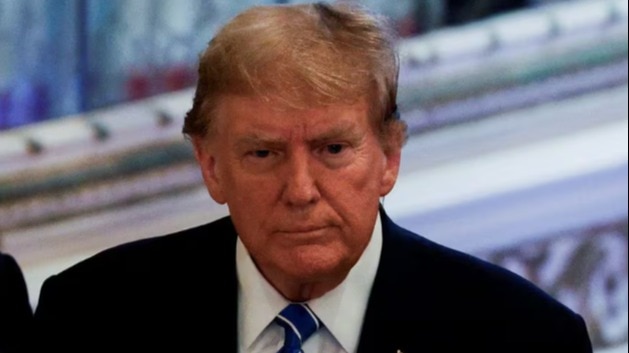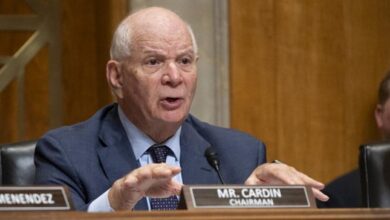US Supreme Court to hear Donald Trump’s criminal immunity argument on April 25
The US Supreme Court has set April 25 as the date it will hear Donald Trump's claim of presidential immunity from prosecution on charges related to his efforts to overturn his 2020 election loss - the last day of oral arguments of its current term.

The US Supreme Court has set April 25 as the date it will hear Donald Trump‘s claim of presidential immunity from prosecution on charges related to his efforts to overturn his 2020 election loss – the last day of oral arguments of its current term.
The court released its updated argument calendar a week after it agreed to take up the case and gave the former president a boost by putting on hold the criminal prosecution being pursued by Special Counsel Jack Smith. It previously had disclosed which week it would hear the matter but had not given the precise date.
The justices will review a lower court’s rejection of Trump’s claim of immunity from prosecution because he was president when he took actions aimed at reversing President Joe Biden’s election victory over him.
Trump, the first former president to face criminal charges, is poised to become the Republican nominee to challenge the Democratic president in the November 5 US election. His last rival for the nomination, former South Carolina Governor Nikki Haley, pulled out of the race on Wednesday.
The immunity case again thrusts the nation’s top judicial body, whose 6-3 conservative majority includes three justices appointed by Trump, into the election fray.
The Supreme Court on Monday handed Trump a major victory by ensuring he will remain on the presidential ballot. The justices barred states from disqualifying candidates for federal office under a constitutional provision involving insurrection, reversing a judicial decision to exclude him from Colorado’s ballot for his conduct related to the Jan. 6, 2021, attack on the U.S. Capitol by his supporters.
The U.S. Court of Appeals for the District of Columbia Circuit on Feb. 6 ruled 3-0 against Trump’s immunity claim, rejecting his bid for “unbounded authority to commit crimes that would neutralize the most fundamental check on executive power – the recognition and implementation of election results.”
In August 2023, Smith brought four federal criminal counts against Trump in the election subversion case. A March 4 trial date was postponed as Trump pressed his immunity claim, with no new date yet set.
Trump has three other pending criminal cases, with a trial in New York state court concerning hush money paid to a porn star set to begin on March 25. Trump has pleaded not guilty in all of them, seeking to portray them as politically motivated.
Smith’s charges accused Trump of conspiring to defraud the United States, obstructing the congressional certification of Biden‘s electoral victory and conspiring to do so, and conspiring against the right of Americans to vote.
Trump and his allies made false claims that the 2020 election was stolen and devised a plan to use false electors to thwart congressional certification of Biden’s victory. Trump also sought to pressure then-Vice President Mike Pence not to allow certification to go forward. Trump’s supporters attacked the Capitol in a bid to prevent the certificate.
If Trump regains the presidency, he could seek to use his powers to force an end to the prosecution or potentially pardon himself for any federal crimes.
In a separate case to be argued on April 16, the Supreme Court has agreed to decide whether a man involved in the Capitol attack can be charged with obstructing an official proceeding – the congressional certification of the 2020 election results. That case has potential implications for Trump because Smith brought two obstruction-related charges.




